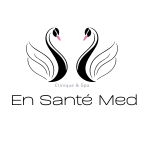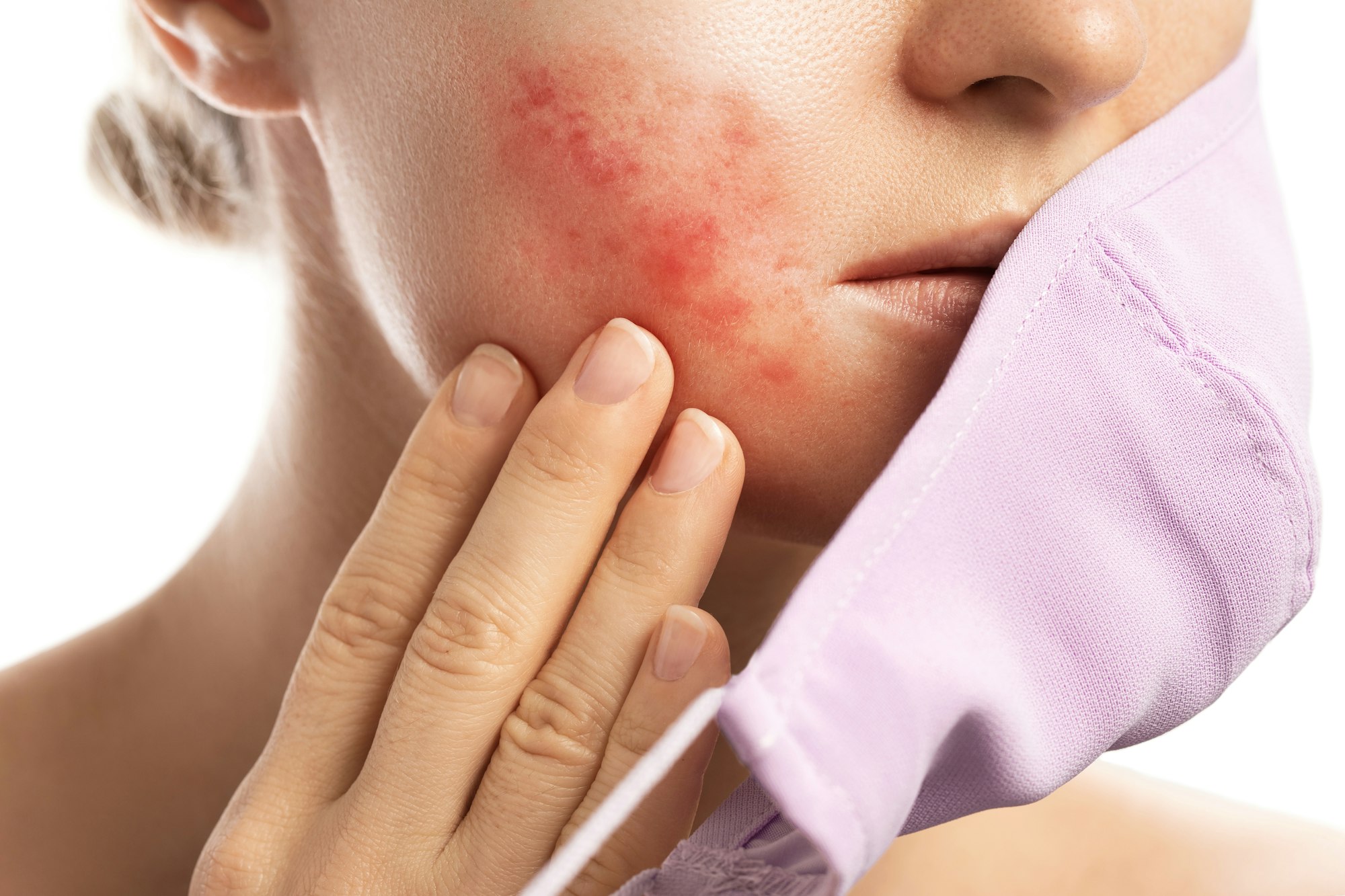CLEARING ROSACEA & MAINTAINING THE RESULTS
WHAT IS ROSACEA?
Rosacea is a chronic inflammatory skin condition that primarily affects the facial area. It manifests as redness, visible blood vessels (telangiectasia), and sometimes small, red, pus-filled bumps (papules and pustules). The condition often begins with intermittent flushing or blushing and can progress to persistent redness over time. Rosacea tends to affect fair-skinned individuals and is more prevalent among people of European descent.
The exact cause of rosacea remains unclear, but it is believed to involve a combination of genetic factors, environmental triggers, and underlying inflammation. Some common triggers that can exacerbate rosacea symptoms include sun exposure, heat, certain foods and beverages (such as spicy foods, alcohol, and hot drinks), stress, and specific skincare products.
HOW IS ROSACEA TREATED?
Treatment for rosacea focuses on managing symptoms and minimizing flare-ups. Dermatologists often recommend a multifaceted approach to control the condition effectively. Here are some of the most common treatments and strategies:
TOPICAL MEDICATIONS
Topical medications are applied directly to the skin and can help reduce redness, inflammation, and the appearance of bumps. Common topical treatments include:
- Metronidazole: An antibiotic that helps reduce inflammation and redness.
- Azelaic Acid: A naturally occurring acid that helps to reduce swelling and redness.
- Ivermectin: An antiparasitic medication that can reduce inflammatory lesions and skin mites that may exacerbate rosacea.
These medications help control the inflammatory response that contributes to rosacea, making them a cornerstone of treatment.
ORAL MEDICATIONS
In some cases, oral medications may be necessary to control rosacea symptoms, particularly when papules and pustules are present. Common oral treatments include:
- Antibiotics: Oral antibiotics like doxycycline or minocycline can help reduce inflammation and bacterial growth. Metronidazole, commonly known as Flagyl, is also used for a limited period to bring symptoms under control.
- Isotretinoin: In severe cases, isotretinoin (a powerful retinoid) may be prescribed to reduce inflammation and oil production.
SUN PROTECTION
Sun protection is crucial for individuals with rosacea. Sunscreen with a high SPF should be a daily part of the skincare routine to prevent further irritation and redness triggered by sun exposure. Choose a broad-spectrum sunscreen that protects against both UVA and UVB rays, and look for formulations that are free from potential irritants.
AVOIDING TRIGGERS
Identifying and avoiding triggers that worsen rosacea symptoms is a key component of managing the condition. Keeping a diary of flare-ups and identifying patterns can help pinpoint specific triggers. Common triggers include:
- Dietary Factors: Spicy foods, alcohol, and hot drinks.
- Environmental Factors: Sun exposure, wind, and extreme temperatures.
- Emotional Factors: Stress and anxiety.
- Physical Factors: Hot showers, saunas, and strenuous exercise.
LIFESTYLE MODIFICATIONS
Lifestyle changes can play a significant role in managing rosacea:
- Stress Management: Techniques such as relaxation exercises, yoga, and meditation can help reduce stress-related flare-ups.
- Gentle Skincare: Use gentle, non-irritating skincare products. Avoid harsh scrubs and exfoliants.
- Avoiding Heat: Limit exposure to hot showers, saunas, and hot beverages.
LASER AND LIGHT THERAPIES
Laser and light therapies can be effective in reducing redness and visible blood vessels associated with rosacea. These treatments are typically performed by dermatologists and include:
- Intense Pulsed Light (IPL) Therapy: IPL uses broad-spectrum light to target and reduce visible blood vessels and redness.
- Vascular Lasers: These lasers target and destroy visible blood vessels without damaging the surrounding skin.
MAINTAINING THE RESULTS
CONSISTENT SKINCARE ROUTINE
Maintaining a consistent skincare routine tailored to rosacea-prone skin is essential. This includes:
- Cleansing: Use a gentle, non-foaming cleanser that does not strip the skin of its natural oils.
- Moisturizing: Keep the skin hydrated with a soothing moisturizer that contains ingredients like ceramides and hyaluronic acid.
- Sun Protection: Apply a broad-spectrum sunscreen with an SPF of at least 30 daily.
REGULAR FOLLOW-UPS WITH A DERMATOLOGIST
Regular follow-ups with a dermatologist are crucial to monitor the condition and adjust treatments as necessary. Your dermatologist can help you stay on track with your treatment plan and make modifications based on your progress and any new developments.
DIETARY AND LIFESTYLE CONSIDERATIONS
DIETARY MODIFICATIONS
Certain dietary changes can help manage rosacea symptoms:
- Anti-Inflammatory Diet: Incorporate foods rich in omega-3 fatty acids, antioxidants, and vitamins to reduce inflammation. Examples include fatty fish, leafy greens, and berries.
- Avoid Triggers: Identify and avoid foods and drinks that trigger your rosacea. Common culprits include spicy foods, alcohol, and hot beverages.
HYDRATION
Staying well-hydrated is essential for maintaining healthy skin. Drink plenty of water throughout the day to keep your skin hydrated and help flush out toxins.
MANAGING EMOTIONAL WELL-BEING
STRESS REDUCTION
Stress can exacerbate rosacea symptoms, so it’s important to find ways to manage stress effectively. Consider incorporating stress-reduction techniques such as:
- Mindfulness Meditation: Practicing mindfulness can help reduce stress and improve your overall sense of well-being.
- Physical Activity: Regular exercise can help reduce stress, but be mindful of avoiding activities that cause overheating or excessive sweating.
SUPPORT NETWORKS
Joining a support group or connecting with others who have rosacea can provide emotional support and practical advice. Sharing experiences and tips with others can be empowering and help you feel less isolated in managing your condition.
CONCLUSION
Rosacea is a chronic condition that requires ongoing management, but with the right combination of treatments and lifestyle adjustments, it is possible to control symptoms and maintain clear skin. Consulting with a dermatologist who specializes in rosacea is essential to develop a personalized treatment plan that addresses your specific needs and skin type.
By embracing a comprehensive approach that includes topical and oral medications, sun protection, lifestyle modifications, and possibly laser or light therapies, you can effectively manage rosacea and enjoy a healthier, clearer complexion.

